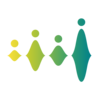Digitalisation in healthcare
Advancing digitalisation is a key precondition for the successful evolution of our healthcare system.
Embracing opportunities
Digitalisation has already caused substantial changes to many areas of social life and the economy. It also offers major opportunities for healthcare: not only for accelerating communication and making administrative procedures more efficient, abolishing faxes and printed forms, but also when it comes to the accessibility of patient data whenever and wherever they are needed as a prerequisite for high-quality, effective and people-centred treatment.
In addition, the systematic and secure evaluation of health data will make it easier to detect diseases, facilitate the provision of individualised treatmtents and offer opportunities for innovative cures. The use of mobile apps harbours opportunities for enabling patients to play a self-determined role in treatment-related decision-making as well as for strengthening health literacy.
This way, digital technologies can help us to better address the challenges that almost all healthcare systems in the western world are currently facing – treating a growing number of older and chronically ill people, funding expensive medical innovations and continuing to ensure high-quality medical care in structurally weak areas.
Key aspects of the digital transformation
Over the past years, the Federal Ministry of Health has established the necessary framework and made substantial progress in driving digital transformation — always with the goal of improving healthcare in Germany at every level. In addition, it is creating the essential structures for a modern, data-driven healthcare system, simplifying everyday care in line with people’s needs, and delivering tangible, real-world benefits for patients, their families, as well as physicians and other healthcare providers.
Key projects in this context include the expansion of secure networks in the healthcare system (telematics infrastructure – TI), the introduction of various applications such as the electronic patient record (ePA for everyone), the electronic prescription (e-prescription) and digital health applications (DiGA) for the insured as well as broader use of video consultations and other services in the field of telemedicine.
Digitalisation Strategy for Health and Care
The Federal Ministry of Health has used a broad-based process of participation to draft an ambitious Digitalisation Strategy for Health and Care. In addition to a vision and overarching objectives and specific measures, the Strategy also contains considerations regarding a regulatory framework and prerequisites for its successful implementation. The strategy is currently being updated in light of recent developments.
Digital transformation in healthcare is being progressed under the auspices of the Digitalisation Strategy, among other things through legislation, most recently the Act to Accelerate the Digitalisation of the Healthcare System (Digital Act – DigiG) and the Act on the improved Use of Health Data (Health Data Use Act – GDNG). The core objective of the Digital Act was to set up an electronic patient record (ePA) for all persons with statutory insurance, while the Health Data Use Act is focused on progressing and improving the use of data for research and innovation in healthcare.
In addition to the development and expansion of infrastructure and the establishment of digital services and applications, important parameters have recently been set for the digital advancement of the healthcare system. These include setting up the Health Data Lab (HDL) at the Federal Institute for Drugs and Medical Devices and developing the interoperability directory of the Society for Telematics Applications (gematik) into a knowledge platform.
Concrete practical insights are also gained through testing digital innovations in healthcare, for instance in the context of the Innovation Fund, experimental pilot projects or through other funding measures that focus on particular regions or topics.
National Health Portal
Last but not least, the National Health Portal provides German citizens with evidence-based, non-biased and easy-to-understand information on selected health topics, disease patterns and treatment options. This enables them to make informed decisions together with their doctor. The aim is to permanently raise awareness about health topics and thus contribute towards boosting health literacy and improving patient sovereignty. The doctor and psychotherapist search as well as the ICD and OPS code search also help to navigate the healthcare system.
The portal not only provides information on diseases, care benefits and patient rights, but also explains, among other things, the digital healthcare services available, such as the ePA, digital health applications (DiGA) or telemedicine offerings. The health portal helps citizens to correctly assess the services offered, identify individual added values and understand and exploit the different innovation steps brought about by digitalisation for themselves.
Health Data as a Key to Progress and Innovation
A high-performing and innovative healthcare system requires a strong data foundation. To advance research, development, and healthcare delivery in Germany, it is essential to strengthen Germany’s position as a hub for innovation.
To facilitate access to health data for researchers and other stakeholders — thereby enabling innovation and improving the quality of care — the Federal Government has already taken important steps. These include, in particular, the Health Data Use Act (GDNG) and, at the European level, the European Health Data Space (EHDS)..
Additional information
-
Interoperability directory
seamless exchange of electronic data in the healthcare system requires that the systems used all speak the same language and are therefore interoperable.
-
Data for research and care
are useful when they can be collected and used systematically and comply with the requirement of informational self-determination.
-
National Health Portal
information verified by experts on diseases, ICD codes, disease prevention and long-term care topics.




























